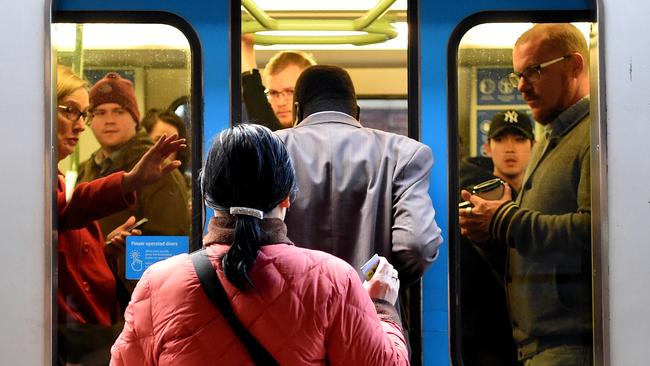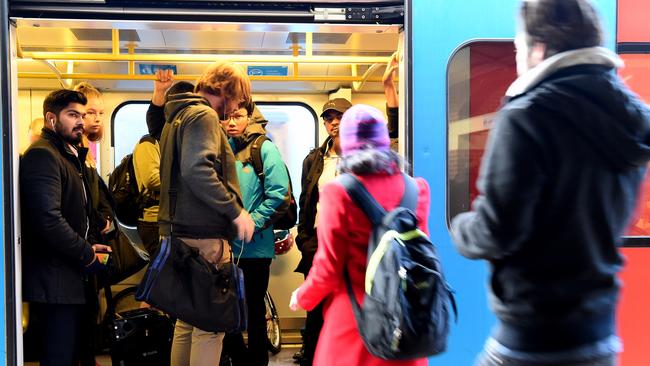Metro’s new measures to tackle late-boarding passengers
Tardy travellers are slowing down Melbourne’s heaving rail network, but have been put on notice under a new plan to stop commuters clogging up platforms and forcing open train doors. This is how Metro is tackling the issue.

VIC News
Don't miss out on the headlines from VIC News. Followed categories will be added to My News.
Tardy travellers slowing down Melbourne’s heaving rail network have been put on notice under a new plan to stop commuters clogging up platforms and forcing open train doors.
Metro Trains is testing two new measures in a bid to get passengers moving more quickly on their way with minimal disruptions.
MAJOR DISRUPTIONS ON NINE VICTORIAN TRAIN LINES
$1B TO UNBLOCK OUR GRIDLOCKED SUBURBS
The first trial, rolled out across all City Loop stations, features a “burn line” graphic on every information screen providing a live countdown of when a train will shut its doors.
Since it was introduced, the project has reduced the number of last-second boarders forcing train doors open as they sprint for the carriage.

Platform markings at Richmond station have also been introduced in a second trial to direct people where to stand as the train comes to a stop.
Authorities believe trains will be more likely to run on time if passengers know where to position themselves and are prevented from blocking people getting off the carriage.
Each idea has been modelled on similar strategies used in London and Hong Kong, where a delay of just a few seconds can have major impacts on the entire network.
Crowded trains as a result of surging passenger numbers have created new punctuality challenges for the operator, and the initiatives have been designed to claw back minutes from peak-hour journeys.
Public Transport Minister Melissa Horne said the trials were exploring new ways to get Melburnians where they needed to go.

METRO DELIVERS MILLIONS DESPITE LATE, CANCELLED TRAINS
“With more trains running than ever before, safely saving every possible second during the boarding and disembarking process can make a big difference down the line,” Ms Horne said.
“Passengers expect and deserve to see their trains run on time — and this is yet another measure to help achieve that.”
In February, 5835 trains across the metropolitan network did not run on time, causing Metro Trains to fall short of its punctuality target of 92 per cent.
But services running out of Richmond and North Melbourne have recorded significant improvements in performance since the platform changes were introduced.
The operator is also looking at other upgrades, including the addition of more myki touch-on spots and making more staff available to help passengers with special needs.


